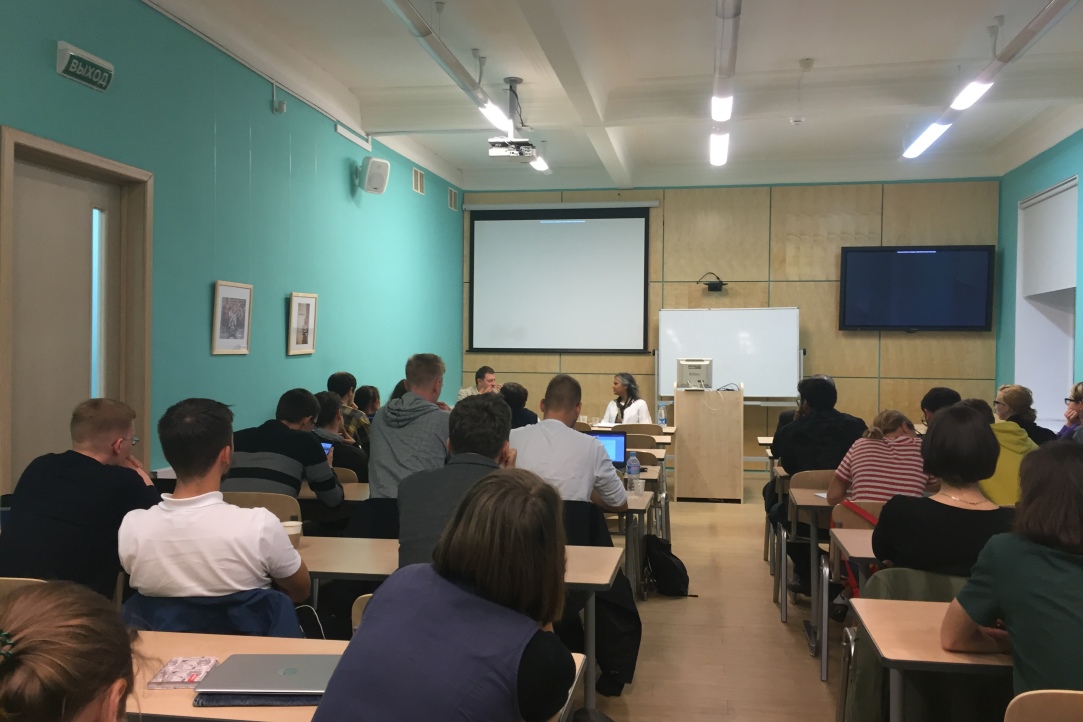«Boundaries of History»: Choi Chatterjee

On September 13, the first public «Boundaries of History» lecture of the academic year took place. That was a unique session because the lecture was given by the winner of the Ab Imperio Award Choi Chatterjee, Professor of History at the California State University. She presented a talk titled “Leo Tolstoy and Rabindranath Tagore: Principles of Global Thinking”.
There is no doubt that Tolstoy and Tagor are among the most famous writers of the 19th and 20th century. However, they also provided quite a few political insights, which for a long time remained overshadowed by their vivid literary careers. Professor Chatterjee started her talk with pointing out that even though Tolstoy and Tagor hadn’t known each other, their life-paths had been similar in many ways: both aristocrats, both highly educated, and neither of them had recieved formal religious instructions. In fact, they both denied the power of the scholars and that of the clergy, they looked for answers in the world of nature and in their own life experience. Throughout their lifes, Tolstoy and Tagor challenged all ideas of the late 19th century: imperialism, nationalism, socialism, capitalism etc. In the historical period when universalism was under attack from competing empires and nation states, these writers were speaking of global thinking and supranational relationship between individuals.

At the end of the lecture Professor tried to explain a critical problem in studying history as seen from the modern perspective: the major issue would be modern history being written from nationalist points of view, while another way of modernity thinking is required. She compared Tolstoy and Tagor, because they had been very critical towards modernity and posed right questions in order to understand global connections. Finally, they’d created a powerful vision of our shared humanity based on notions of self, nature and global thinking and, perhaps, their concepts have the power to move us beyond contemporary debates between the Right and the Left, economic development and environmentalism, the nation and the world.
